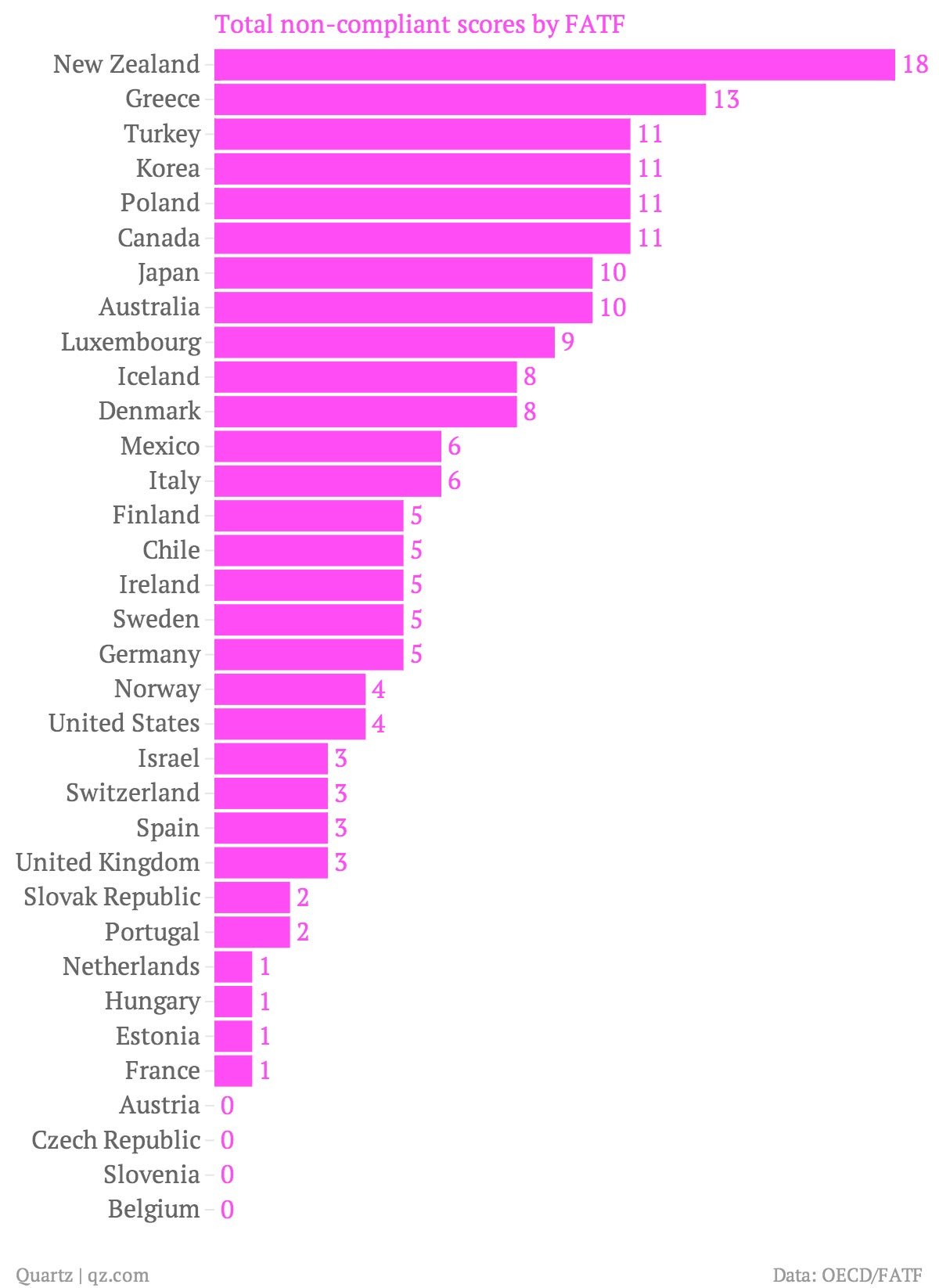The world’s least corrupt country strangely appears to be quite bad at fighting dirty money
The Organization for Economic Cooperation and Development (OECD) released a report today (pdf) assessing how its 30 member nations have been working to help curb to nearly $1 trillion of illicit cash that’s being smuggled out of developing countries each year. The 116-page report surveys a number of avenues for dirty money flow, including money laundering, tax evasion, and bribery, among others.


The Organization for Economic Cooperation and Development (OECD) released a report today (pdf) assessing how its 30 member nations have been working to help curb to nearly $1 trillion of illicit cash that’s being smuggled out of developing countries each year. The 116-page report surveys a number of avenues for dirty money flow, including money laundering, tax evasion, and bribery, among others.
A surprising tidbit is tucked away in a chart on page 49 of the report. The Financial Action Task Force, an intergovernmental organization that works to combat money laundering and other illicit cash movements, evaluates how well countries are complying with 49 different recommendations for fighting illegal flows of money; on each one, it ranks countries as “compliant,” “largely compliant,” “partly compliant,” or “non-compliant.” The country rated as “non-compliant” on the most counts: New Zealand.

New Zealand’s 18 non-compliant scores include those relating to wire-transfer rules, non-profit organizations, internal controls, and audits and unusual transactions. It also racks up one of the lowest tallies of “compliant” ratings in the 30-country survey—just five. This seems a bit surprising for a country that, along with Denmark, is perceived as being the least corrupt of the 177 countries on Transparency International’s most recent annual index.
It’s unclear what, if anything, the FATF ranking means for New Zealand’s anti-corruption status. For one thing, several other countries with nearly spotless reputations, such as Denmark and Canada, rack up a relatively high number of FATF’s “non-compliant” ratings and few “compliant” ones. For another thing, the OECD report is larded with caveats (see p. 47) about the unreliability of the FATF data, warning that they span several different years, are partly out of date (New Zealand’s are from 2009), and may not be directly comparable anyway.
Still, it’s a puzzling finding. And whatever the reason, it’s a reminder that all such international rankings should be treated with caution. (We contacted the OECD for comment and will update this if a response is forthcoming.)